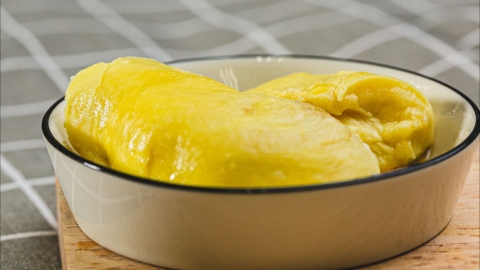Can I take cephalosporin after eating durian?
Generally, it is not recommended to take cephalosporins immediately after consuming durian. There should be at least a 24-hour interval between the two. Detailed explanations are as follows:

Durian does not contain ethanol, but it does contain sulfide compounds, which may inhibit the activity of acetaldehyde dehydrogenase in the liver. Cephalosporin antibiotics can interact with ethanol to cause a disulfiram-like reaction, characterized by chest tightness, palpitations, vomiting, or even shock. Although durian does not contain alcohol, the sulfide compounds may prolong the metabolic time of the drug in the body by inhibiting acetaldehyde dehydrogenase, thereby increasing the risk of similar reactions. Additionally, durian is a high-calorie, high-sugar food; excessive consumption may increase the burden on the gastrointestinal system. When taken together with medications, it may affect drug absorption or exacerbate physical discomfort.
It is recommended to avoid eating durian and other foods or beverages containing alcohol for seven days before and after taking cephalosporins. If durian is inadvertently consumed first, it is advised to wait at least one day before taking cephalosporins, allowing the body sufficient time to metabolize the sulfide compounds. Meanwhile, during the course of taking cephalosporins, one should maintain a light diet and avoid high-fat and high-sugar foods to prevent affecting drug efficacy or triggering adverse reactions.
Therefore, to ensure safe medication use, it is not advisable to take cephalosporins immediately after eating durian. A strict interval between the two must be observed. If medication is necessary, priority should be given to consulting a doctor or pharmacist to develop an appropriate dietary and medication plan based on individual conditions, avoiding health risks caused by food-drug interactions.






